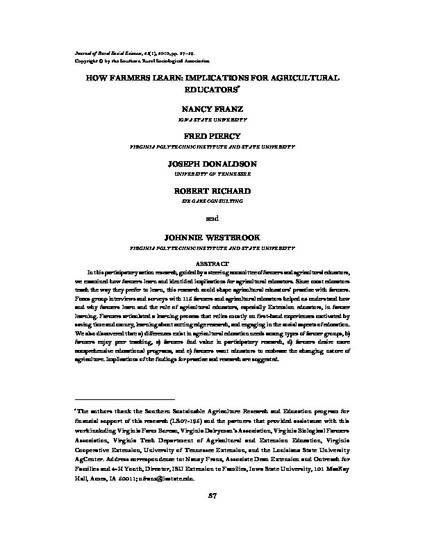
In this participatory action research, guided by a steering committee of farmers and agricultural educators, we examined how farmers learn and identified implications for agricultural educators. Since most educators teach the way they prefer to learn, this research could shape agricultural educators’ practice with farmers. Focus group interviews and surveys with 115 farmers and agricultural educators helped us understand how and why farmers learn and the role of agricultural educators, especially Extension educators, in farmer learning. Farmers articulated a learning process that relies mostly on first-hand experiences motivated by saving time and money, learning about cutting edge research, and engaging in the social aspects of education. We also discovered that: a) differences exist in agricultural education needs among types of farmer groups, b) farmers enjoy peer teaching, c) farmers find value in participatory research, d) farmers desire more comprehensive educational programs, and e) farmers want educators to embrace the changing nature of agriculture. Implications of the findings for practice and research are suggested.
Available at: http://works.bepress.com/nancy_franz/88/
